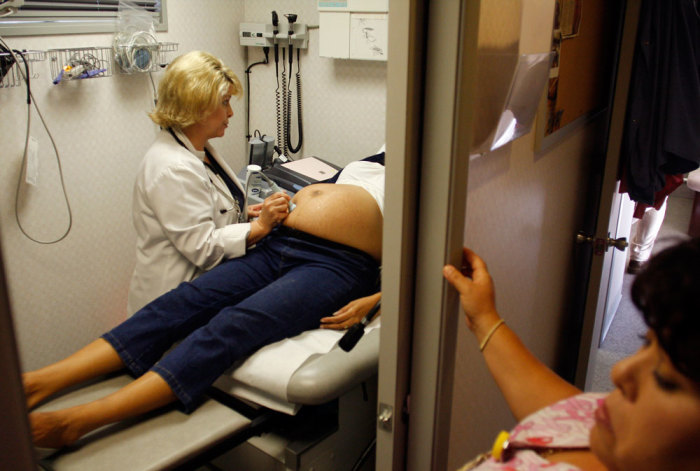Women who abort first pregnancies at greater risk of health complications: study

Women who terminated their first pregnancies appear to have greater health risks during later pregnancies than women whose first pregnancy results in a live birth, according to a study by a pro-life organization.
The study, conducted by the Charlotte Lozier Institute (CLI) and published last month by the peer-reviewed international journal Health Services Research and Managerial Epidemiology, asserts that aborting a first pregnancy can impact the rest of women’s reproductive lives.
Researchers examined data from over 5,400 Medicaid beneficiaries between 1999 and 2015 in the 17 states that use taxpayer funds to pay for abortions that federal Medicaid does not cover. The study organized women ages 16 and older into three separate groups depending on whether they gave birth or if their pregnancy ended in an abortion or a natural miscarriage.
According to the study, compared to women whose first pregnancies resulted in a live birth, women who aborted their first pregnancies had, on average, 53% more miscarriages.
Women who terminate their first pregnancies also had 35% more pregnancies over their reproductive lifetimes and more than four times as many abortions than women whose first pregnancies involved a live birth.
In addition, women whose first pregnancies ended in abortion experienced only half the number of live births (52%) compared to women who carried their first pregnancies to term.
Tessa Longbons, senior research associate at CLI and a co-author of the study, told The Christian Post that the study is one of the first to utilize Medicaid data to assess the impact of women’s first pregnancy outcomes on the rest of their reproductive lives.
The study’s co-author said that the data appears to refute abortion proponents’ claims that the procedure enables women to direct their lives and choose how to structure their families.
“But what we see from this is that's not really the case, because clearly abortion is not putting these women on a different track,” Longbons said.
“It's not giving them power over their lives or empowering them. It's really just setting them on this course of having more pregnancies and more abortions.”
Longbons also noted that research cited in CLI’s study finds that the risk of low birth weight or premature birth increases with each abortion. The study also analyzed data that found abortion increases a woman’s risk of experiencing adverse mental health outcomes and premature death.
The CLI’s findings contrast with The Turnaway Study, which abortion proponents often cite as proof that the procedure benefits women and that being denied an abortion poses a greater risk to women’s health.
For the Turnaway study, demographer Diana Greene Foster and her team conducted research from 2008 to 2010, asking 30 abortion facilities throughout the country to recruit women. The study analyzed 1,000 women who had abortions or were turned away by the clinic and gave birth due to being beyond their state’s gestational limit.
After interviewing participants for five years, the study concluded there is no evidence that abortion negatively impacts women’s mental health, claiming that 95% of participants who had abortions felt it was the right decision.
Longbons, however, pointed out that the difference between CLI’s research and the survey research used in Turnaway is that their study’s findings are based on comprehensive claims data.
The pro-life researcher said that the team analyzed claims submitted to the Centers for Medicare & Medicaid Services, meaning no women were lost to follow-up, a criticism of the Turnaway study. The lack of a true control group and a low participation rate are some of the flaws that have prompted skepticism regarding the reliability of Foster’s findings.
Longbons highlighted peer-reviewed research from a 13-year-long longitudinal study, which found the risk of adverse mental health outcomes increases by a factor of 1.23 for each subsequent abortion.
“As we've seen from this, that first pregnancy, that first decision can shape the rest of someone's life,” Longbons said, pointing to CLI’s recent study. “That's why it's so important to be there, to help her, to be alongside her.”
The researcher stated that supporting pregnant women is something the pro-life movement already does well, emphasizing the work of pregnancy resource centers and state policies such as Texas’ Alternatives to Abortion program. The initiative helps connect women to supportive services and material resources.
In addition, Longbons noted that CLI frequently works alongside Her PLAN, a program conducted by Susan B. Anthony Pro-Life America that helps providers assist women in need.
“This study of how that first pregnancy can shape the rest of a woman's life just underscores what we've known all along; that we need to be there to support women as they are trying to make this decision and make sure that they do have the support and the confidence that they need,” Longbons said.
Samantha Kamman is a reporter for The Christian Post. She can be reached at: [email protected].




























